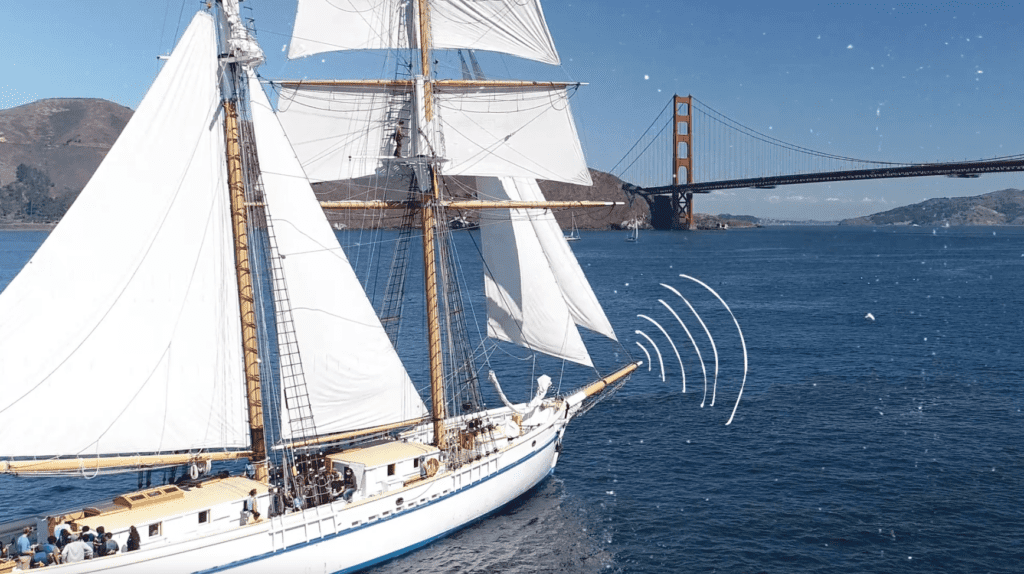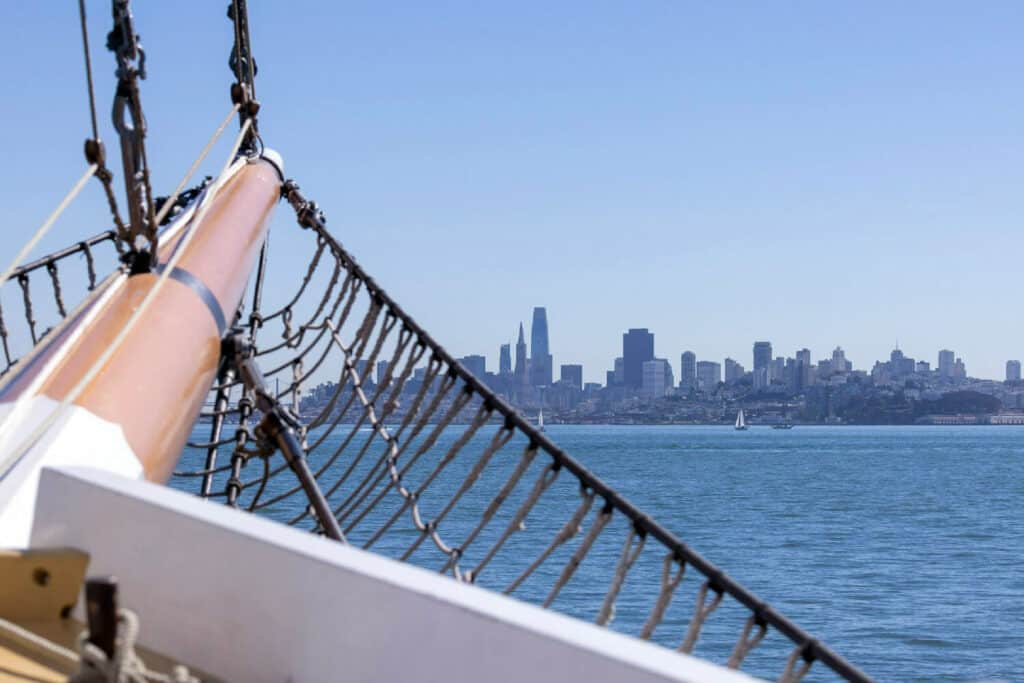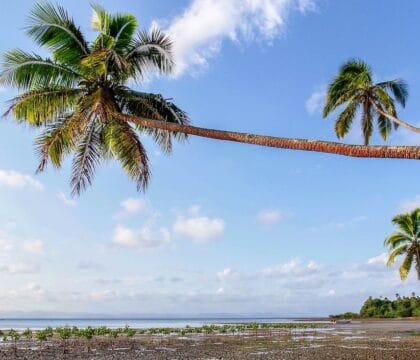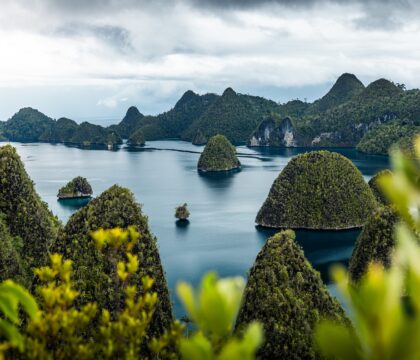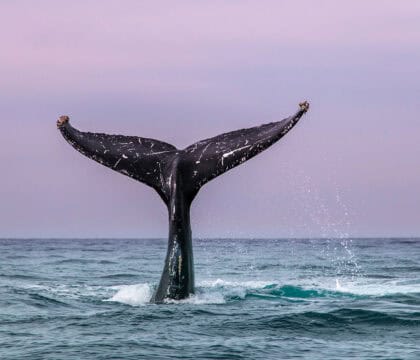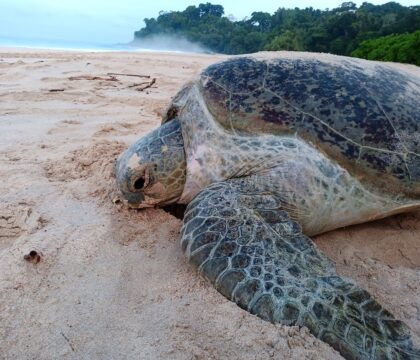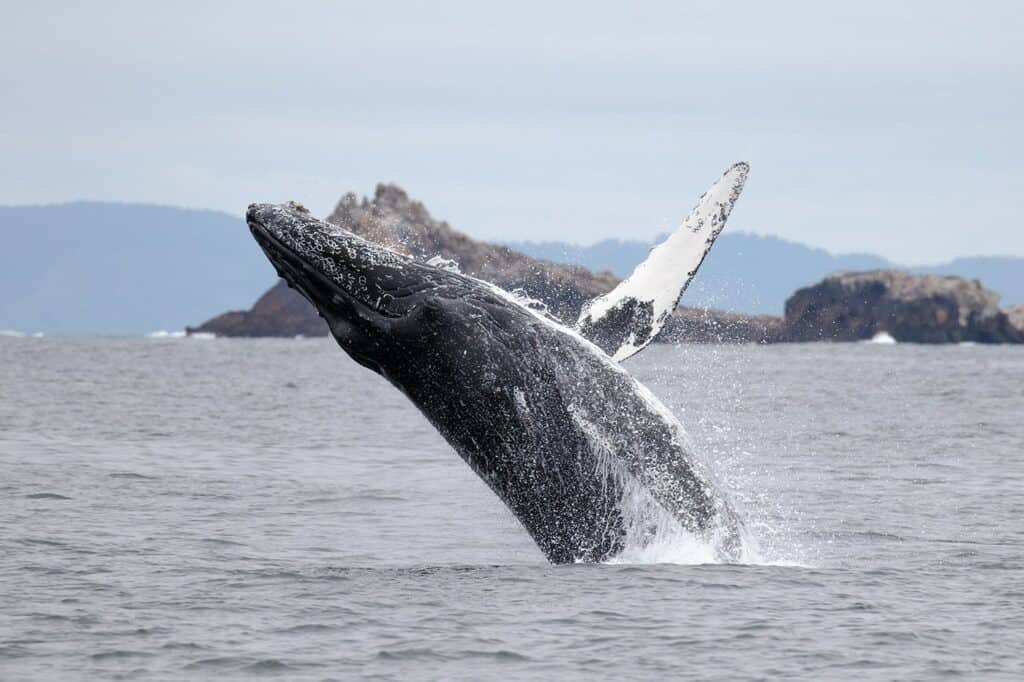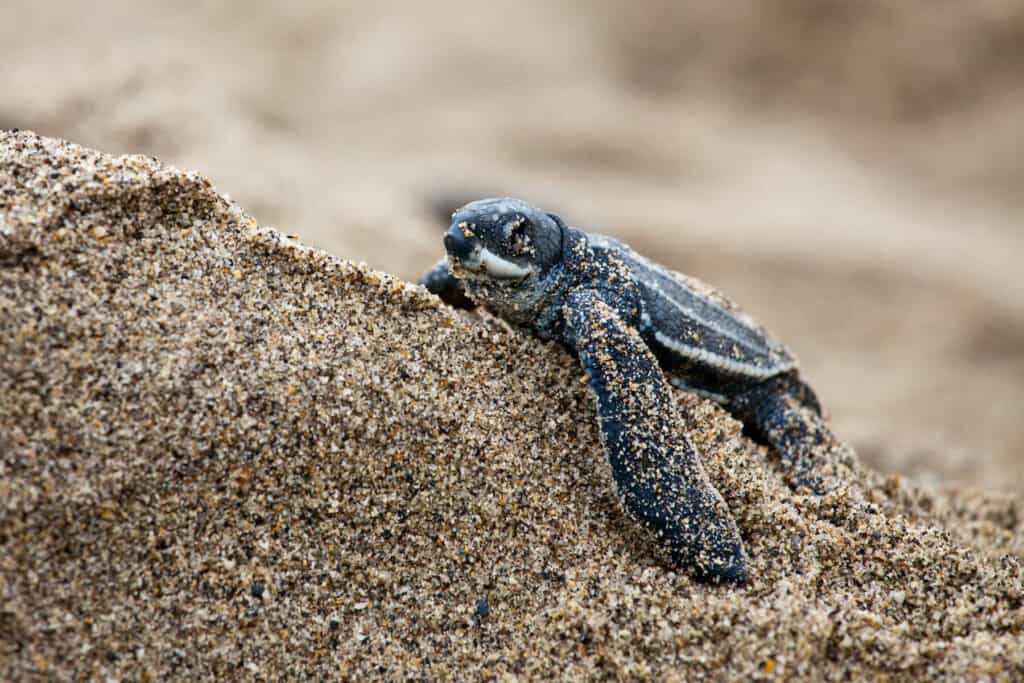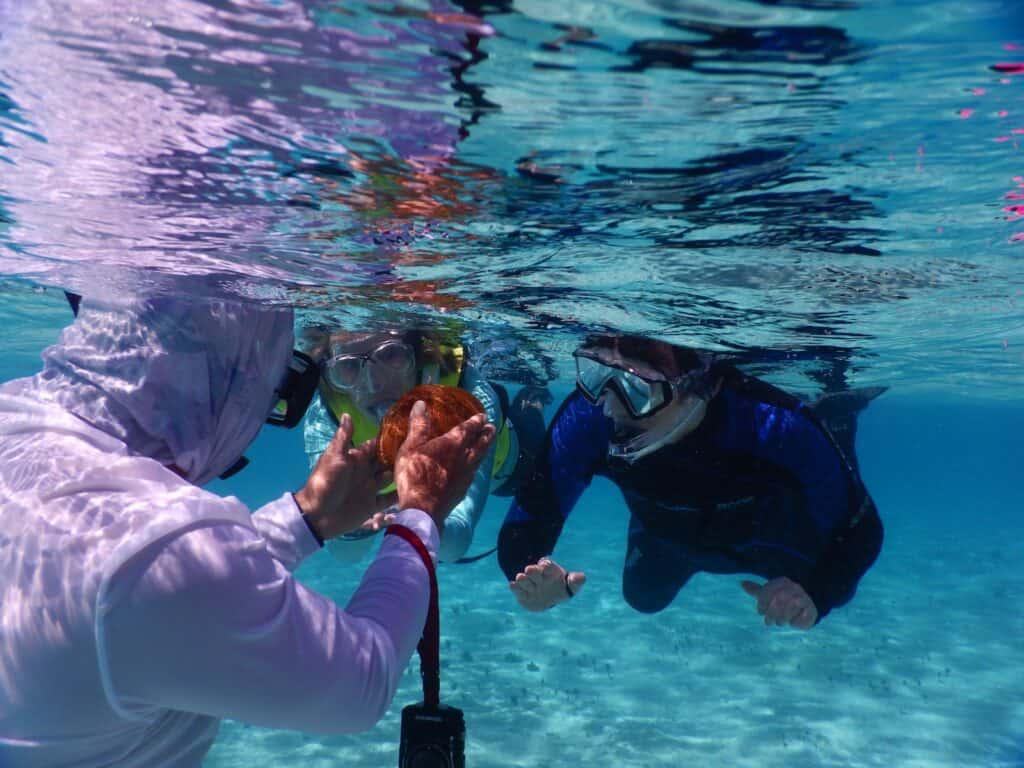November 18, 2025 • Program Updates
For many young people growing up around the San Francisco Bay, the ocean is a distant idea—something they learn about in class, see on posters, or hear tourists talk about but rarely experience firsthand. Despite living beside one of the world’s most vibrant marine ecosystems, coastal access remains uneven across the region, especially for students from low-income communities. These disparities mean that many local students grow up close to the ocean, yet have few meaningful opportunities to experience it.
The Conservation Scholars Program (CSP) was created to help bridge this gap.
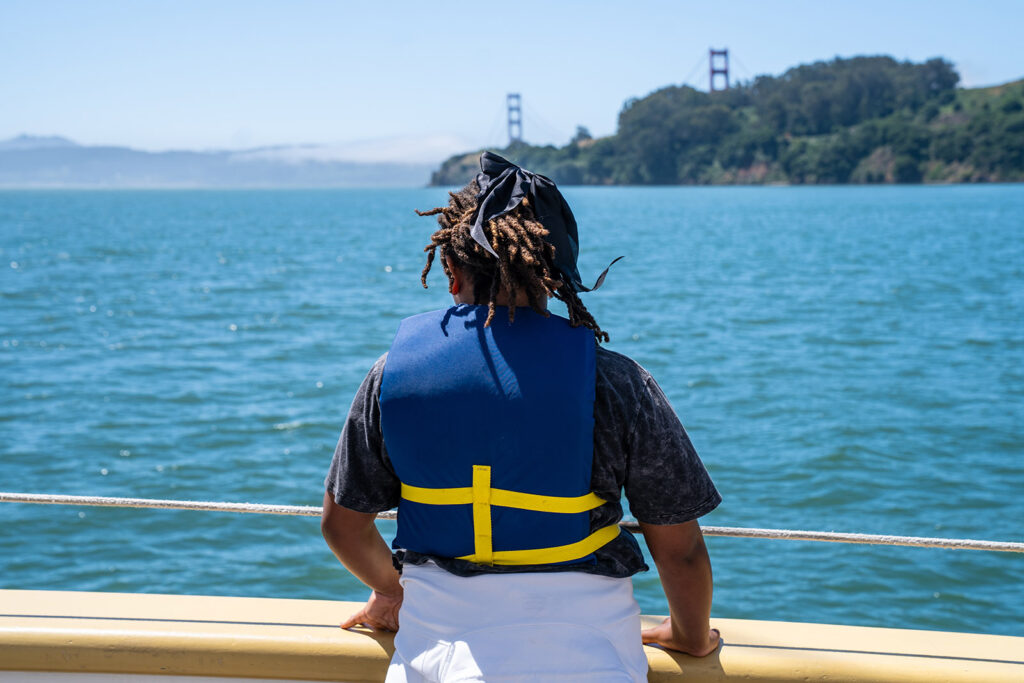
Through the Conservation Scholars Program, we provide free educational voyages on the San Francisco Bay for students and educators. Our goals are to improve access to ocean experiences and nurture the next generation of ocean conservationists.
Why Firsthand Ocean Experiences Matter
Oceanic Society is America’s oldest ocean conservation nonprofit, and for more than 55 years, we’ve witnessed something simple but profound: when people experience the ocean firsthand, things change. Curiosity deepens. Empathy grows. Conservation becomes personal.
But these opportunities are not equally available. Many Bay Area families face financial, cultural, and logistical barriers that limit access to outdoor learning. As a result, too many students miss out on early experiences in nature that build confidence, spark interest in science, and open pathways to environmental careers.
To address these disparities and expand our efforts to create a more oceanic society, we launched the CSP in 2017 to provide fully supported educational voyages that introduce youth to the ocean, build scientific understanding, and inspire the next generation of environmental leaders.
The Power of Hands-On Nature Education
Outdoor learning is transformative. A growing body of research shows that nature-based education improves academic performance, enhances mental health, and strengthens environmental attitudes. One large-scale study found that outdoor field experiences can boost science achievement by 27% and increase student engagement by nearly 50%, while a review of 147 studies found that nature-based programs consistently improve learning outcomes, creativity, and well-being.
Yet financial, logistical, and systemic barriers often prevent kids from accessing marine science education opportunities.
By removing these obstacles, the Conservation Scholars Program is expanding access and getting as many students onto the water as possible. Oceanic Society provides classroom support, logistical planning, and on-the-water learning experiences at no cost to schools or families.
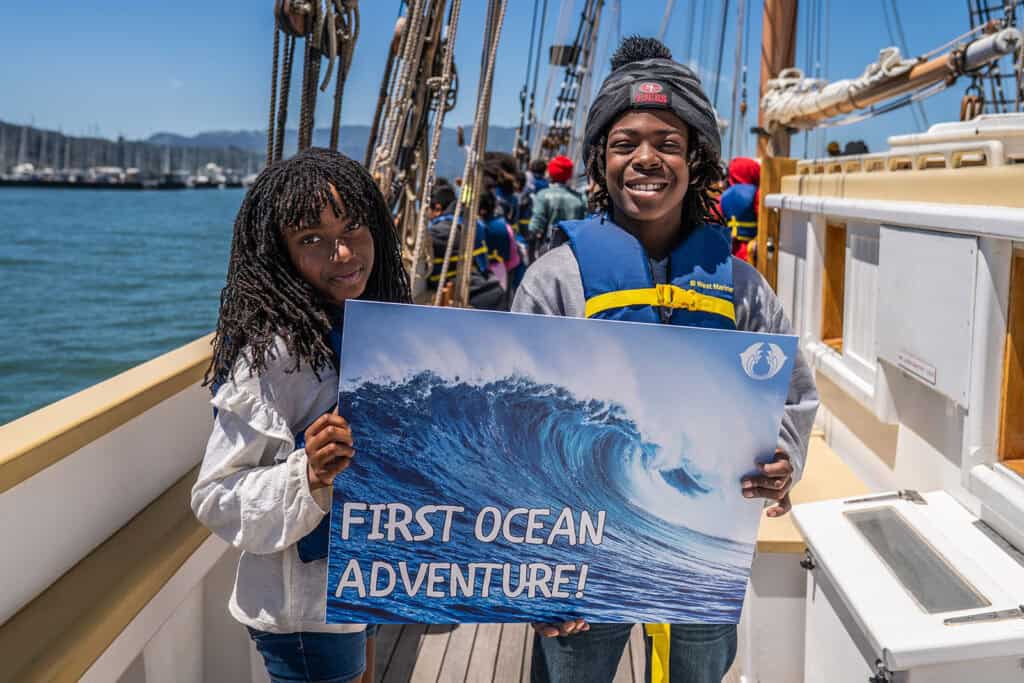
For most of our participating students, the Oceanic Society-hosted trip is their first time experiencing the ocean from a boat.
And when students finally step aboard, the shift is immediate. Eyes widen. Questions spill out. Wildlife becomes real, not abstract. The experience transforms the ocean from something distant into something they can see, hear, feel, and understand.
“The best part of the trip? Umm, seeing Plankton from SpongeBob is real!! This is the most fun school’s been like ever.”
– Conservation Scholar
A Day in the Life of a Conservation Scholar
Every expedition is led by experienced Oceanic Society naturalists and designed with education experts to make hands-on marine science activities engaging and relevant. Throughout the day on board the wooden tall ship Matthew Turner, Conservation Scholars rotate through immersive learning stations that bring the Bay’s ecosystem to life:
- Wildlife Monitoring: Students learn how scientists conduct marine wildlife surveys, documenting seals, porpoises, sea lions, and seabirds.
- Plankton Sampling and Microplastic Analysis: Using a manta trawl net, students collect and examine plankton under a microscope. They look for microplastics, and naturalists discuss the ecology of plankton and the impacts of plastic pollution.
- Ecology of the Bay: Naturalists guide discussions about the Bay’s conservation history, from overfishing and habitat degradation to success stories like the return of harbor porpoises.
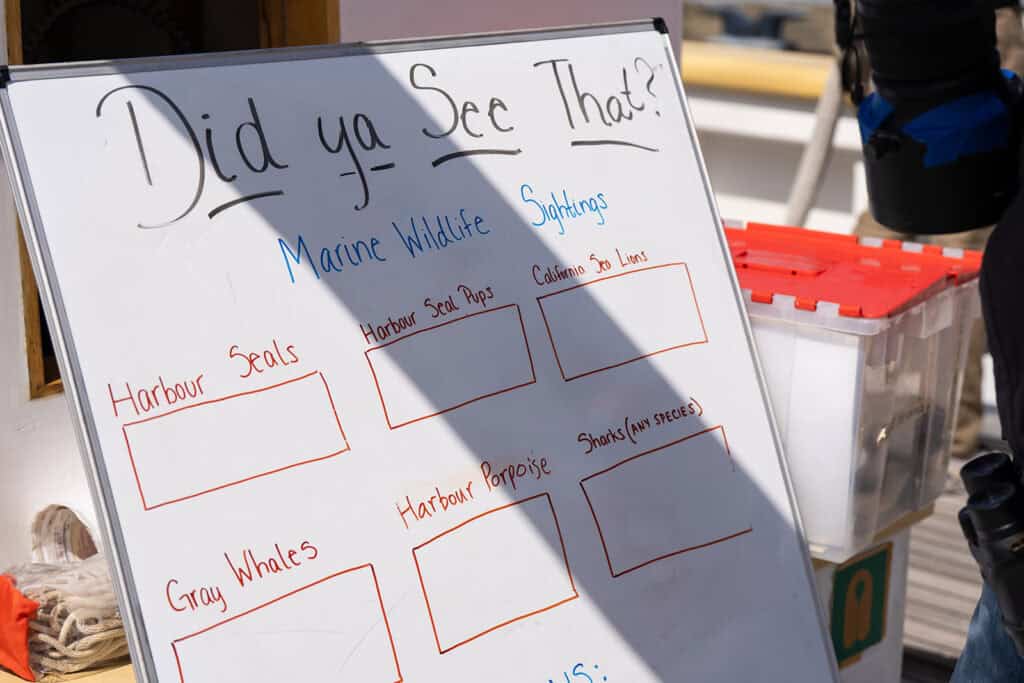
Students participate in activities throughout the trip that teach them about the ocean, science, and conservation issues. One activity involves monitoring for wildlife throughout the trip and recording sightings.
For many students, these moments represent their first direct connection to marine science, their first time feeling the roll of the waves beneath their feet, or their first opportunity to see marine science concepts come alive beyond textbook pages.
“I never even been on a boat before. But now I get it, why people always looking happy on their boats. It’s cool out there, man. I wanna do it again.”
– Conservation Scholar
Learning on the Bay’s Carbon-Neutral Tall Ship: The Matthew Turner
Each Conservation Scholars trip takes place aboard the Matthew Turner, an eco-friendly tall ship built and owned by the nonprofit Call of the Sea. More than just a vessel, the ship is a floating classroom—a place where history, innovation, and sustainability merge. It was constructed with a commitment to clean energy and low-impact design:
- Carbon-neutral operations supported by regenerative power under sail
- Biofuel and solar/wind charging systems to reduce environmental impact
- LED lighting and efficient appliances that keep energy use below 50 kWh/day
- Sustainable materials and methods integrated throughout construction
Standing at the rail of this remarkable ship, students gain a sense of perspective that few outdoor learning experiences can match.
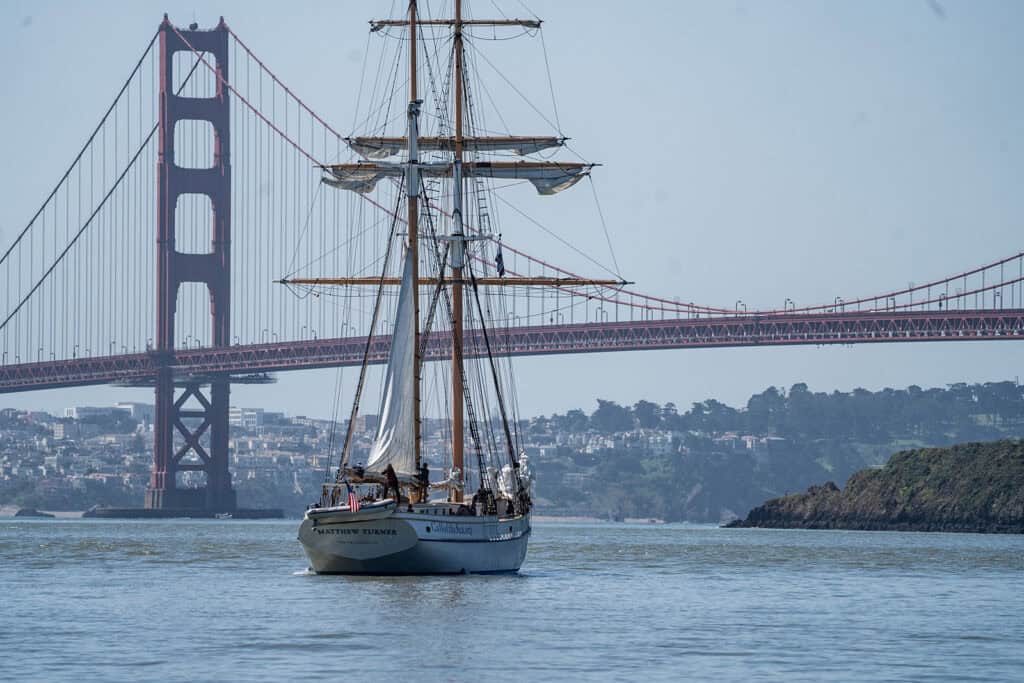
Trips take place aboard the Matthew Turner, a carbon neutral tall ship owned and operated by the nonprofit Call of the Sea.
What We Achieved in 2024–2025
This past year, we continued to expand the reach and deepen the educational impact of the Conservation Scholars Program. Between November 2024 and June 2025:
- 335 students from 6 Bay Area schools participated
- 261 students experienced the ocean on a boat for the first time
- 81% reported increased interest in environmental career paths
- 85% expressed greater interest in marine life
- 91% learned something new about the ocean
- 91% increased their understanding of how to care for the environment
- 94% said they would like to attend a similar trip again
- 100% of scholars created unique environmental pledges
“The crew was incredibly welcoming, patient, and worked wonderfully with my group. Everything was organized and interactive. I wouldn’t hesitate to bring a future class if given the chance!”
– Teacher
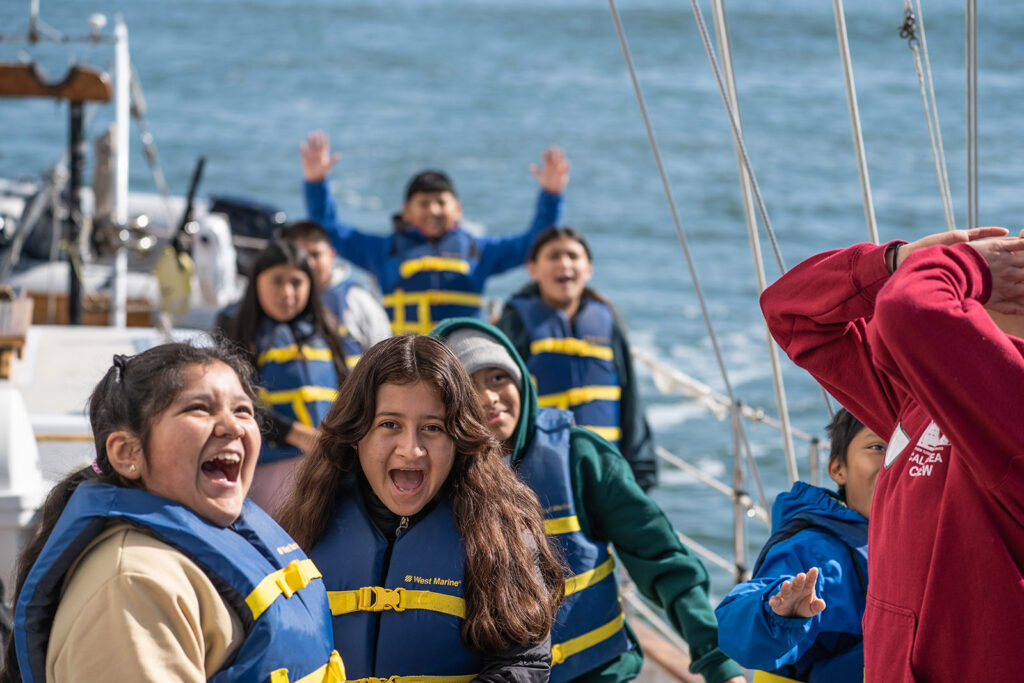
We aim to provide life-changing experiences that foster long-term connections between students and the ocean.
Four Years of Inspiring Future Ocean Leaders
As we reflect on this year, we’re also looking at the bigger picture of our long-term impact. Since 2021, our Conservation Scholars Program has:
- Hosted 36 at-sea expeditions for 1,370 students
- Secured hundreds of environmental pledges
- Introduced 1,000+ youth to the ocean for the first time
Each trip adds another spark, another moment when a student realizes the ocean is not distant, intimidating, or “not for them,” but integral to their community and future.
Looking Forward: Expanding Access & Impact
As we reflect on this year’s accomplishments, we are filled with optimism. The Conservation Scholars Program is growing not only in size but in depth of impact. Each student is a part of a bigger story: one of access, inclusion, empowerment, and environmental hope.
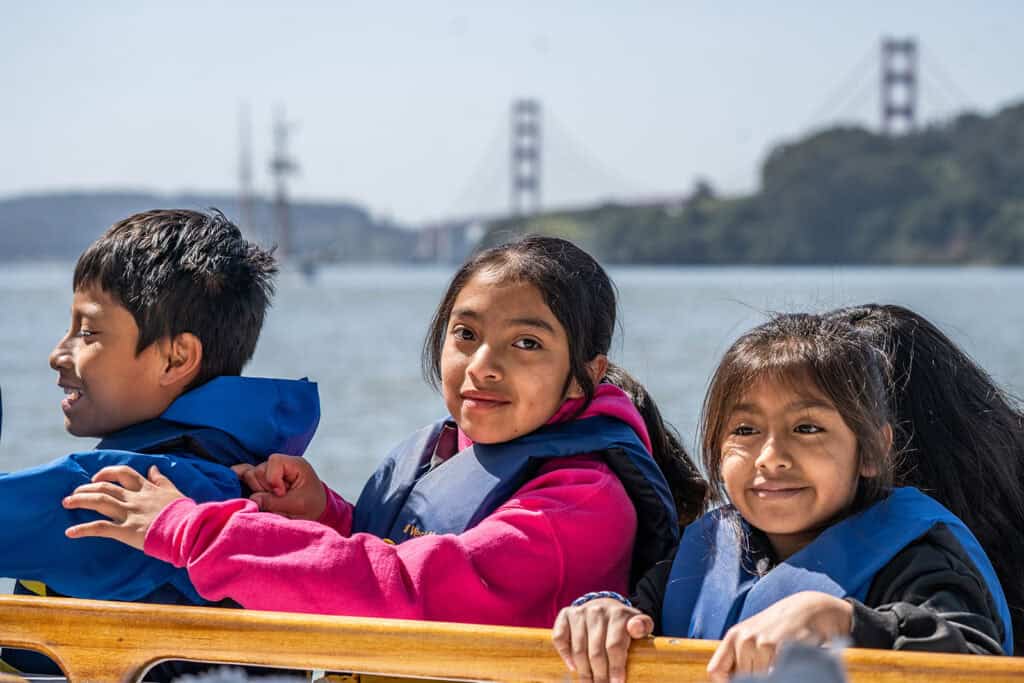
Support the next generation of ocean conservation leaders with a donation today.
Support the Next Generation of Ocean Leaders
The Conservation Scholars Program is only possible because of people and partners who believe every young person deserves the chance to experience the ocean firsthand. If you’d like to support or participate in this work, here are meaningful ways to get involved:
- Sponsor a Student: A contribution of $200 covers the full cost for one student to join a day of hands-on marine science and ocean exploration.
- Sponsor a Trip: A gift of $8,000 funds an entire Conservation Scholars voyage, bringing a group of 40 students onto the water for a transformative learning experience.
- Become a Corporate Partner: Join other mission-driven companies in supporting equitable ocean access and youth environmental education.
Your gift helps us reach more students, build stronger school partnerships, and create lasting connections between youth and the ocean.

